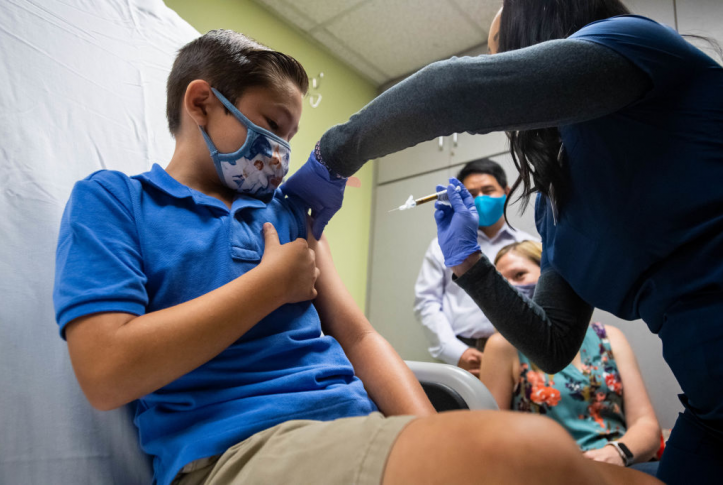The COVID-19 vaccination effort in the United States entered a more challenging phase after the number of Americans eager to take the vaccine declined. Data suggest that primary care providers (PCPs) could serve an essential role in educating and encouraging patients to receive the vaccine, as well as administering vaccinations in primary care settings. A recent national survey by the African American Research Collaborative and the Commonwealth Fund confirms that 53 percent of the remaining unvaccinated population would prefer to get their shots in their doctor’s offices; 60 percent consider their personal doctor the most trusted source of information on the vaccine.
It seems clear that primary care presents a robust opportunity in the fight against COVID-19, but providers — especially smaller, independent practices — face unique challenges: administrative burden in planning for and dealing with the logistics of vaccine delivery, as well as financial challenges and limitations.
There are several actions the Biden administration can take to support primary care providers in overcoming these challenges:
Alleviating Administrative and Logistical Burden
- Reduce vaccine waste. Vaccine vials contain multiple doses, and once punctured the remaining doses last only a few hours. As a result, PCPs worry about wasting doses and struggle with scheduling. To address this, the Biden administration can accelerate the production of single-dose vials, even leveraging the Defense Production Act once the vaccine is approved by the Food and Drug Administration. The administration also can develop wastage guidelines specific to PCPs, reduce PCP uncertainty about penalties associated with wasting doses, and promote solutions for avoiding wasted doses, like offering standing vaccination days.
- Offer tailored technical assistance and training for vaccination workflows. Practices may struggle to develop the workflows necessary to fit COVID-19 vaccination alongside their existing responsibilities. These will require training, use of new technologies like scheduling systems, and creating standard operating procedures. The Biden administration can invest in expanding and supporting training and assistance programs for primary care; for instance, by holding webinars on workflow development and producing and disseminating scripts to combat misinformation and answer common questions.
- Streamline ordering and data-reporting requirements. Primary care practices have limited staff to devote to forecasting demand, ordering vaccines, and entering and reporting vaccination data. The administration can work to streamline these tasks while also targeting outreach to PCPs by engaging professional societies in training. They also can support hub-and-spoke distribution systems — for example, connecting practices and pharmacies to redistribute expiring doses. Ensuring PCPs have information about vaccinations of their patients at other sites, through the use of consistent immunization information systems, also would help to create efficiencies.
Addressing Financial Challenges
- Incentivize vaccine education and counseling. In fee-for service settings, PCPs are unable to bill for the time they spend counseling patients on the importance and safety of COVID-19 vaccinations. These conversations can take place over several visits and may not result in a reimbursable vaccination. While the recent increase in Medicare reimbursement for vaccine administration has been helpful for offsetting costs, in many cases it is still not enough, particularly for smaller, independent practices. Moreover, there is variability in state Medicaid reimbursement rates for vaccination. The federal government could encourage providers to engage patients in these conversations by creating standard billing codes for vaccine education in Medicare and Medicaid fee-for-service, accelerating value-based payment arrangements that emphasize the wellness of the patient population, and recommending COVID-19 vaccine counseling as part of the annual Medicare wellness exams.
- Financially support or encourage partnerships among primary care practices, health systems, community-based organizations, and other partners. Given sufficient resources, primary care practices could develop multisector partnerships, particularly with trusted community-based organizations, to develop innovative vaccination outreach programs. Community-based organizations are best positioned to reach those who are disconnected from the health care system; for instance, by staffing mobile vaccination sites with primary care clinicians. The federal government can financially enable these partnerships through bonus payments or targeted grant opportunities and can share learnings from particularly successful partnerships.
In addition, it will be important to prioritize pediatricians and family practice providers, as they are uniquely positioned to offer information and COVID-19 vaccinations to children and adults simultaneously — and they are well versed in managing vaccine hesitancy. As we await the results of COVID-19 vaccine trials among younger children, the administration can work with professional societies or clinician groups to prepare family physicians and pediatricians to engage parents and children in COVID-19 vaccination counseling, particularly during the critical back-to-school season.
The federal government also may consider focusing on most in-need or at-risk communities in partnership with state and local governments. For example, a tool developed by Ariadne Labs, with support from the Commonwealth Fund, enables state and local policymakers to identify vaccine deserts as well as primary care offices within them that can be leveraged for vaccination. Federal policymakers should partner closely with state and local governments to target primary care practices in lower-income communities or those with high rates of vaccine hesitancy or COVID-19 cases.
PCPs can be highly effective vaccinators and could reach millions of Americans if the federal government and states can develop strategies that address the unique barriers they face in delivering COVID-19 vaccines.



